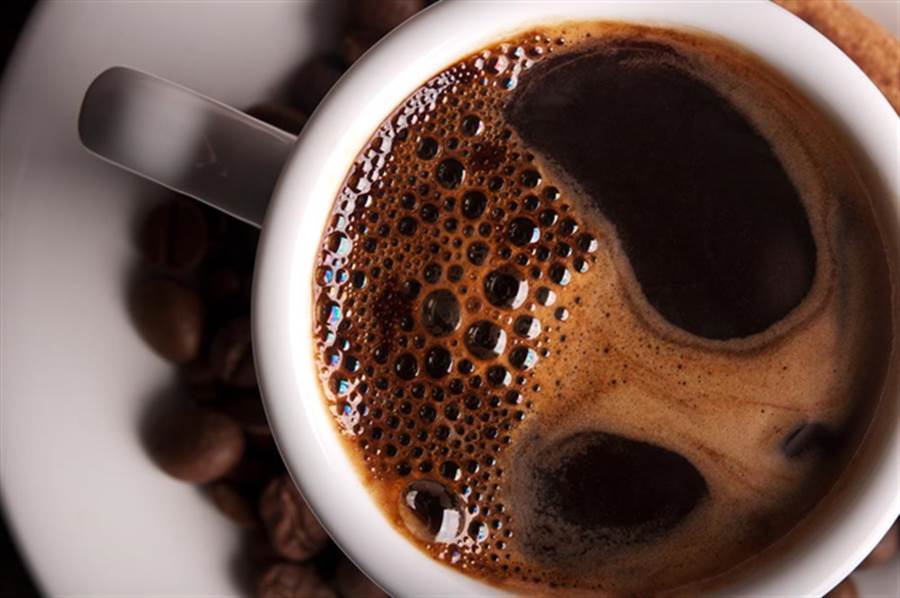The latest British research: drinking coffee can reduce the risk of liver cancer by 50%. Instant solution is also effective!

Professional coffee knowledge exchange more coffee bean information please follow the coffee workshop (Wechat official account cafe_style)
Whether coffee is brewed with a strong fragrance or a mellow taste, it is difficult for coffee lovers to extricate themselves. more importantly, apart from the enjoyment of smell and taste, recent studies have pointed out that coffee has the effects of anti-aging and anti-oxidation and preventing a variety of diseases. And a new large study even pointed out that coffee is expected to reduce the risk of hepatocellular carcinoma by up to 50%!
Drinking coffee reduces the risk of liver cancer, and is not limited to regular coffee. Instant coffee may also be effective.
A large study published in the British Journal of Cancer (British Journal of Cancer) in May 2019 found that drinking coffee is expected to reduce the risk of liver cancer, and that instant coffee and general coffee may be effective.
The study conducted a questionnaire and a 7.5-year follow-up survey on the relationship between coffee drinking habits and digestive system cancer among 470000 British residents, of whom about 3.5, 000 had related cancers. It was found that among many cancers of the digestive system, drinking coffee may help to reduce the risk of hepatocellular carcinoma by 50%, while instant coffee can reduce the risk of hepatocellular cancer by about 49% according to the type of coffee. Regular coffee made with coffee bean flour can reduce the risk of hepatocellular cancer by about 53%.
The mechanism of coffee preventing liver cancer has not been determined so far.
Another study conducted by institutions such as the University of Southampton (University of Southampton) in the UK in May 2017 also found that, depending on the method of the study, drinking two cups of coffee a day can reduce the risk of hepatocellular cancer by 47%. Although the effect of coffee in preventing liver cancer is still not fully understood, it may be related to the following reasons:
Caffeine has the effect of antioxidation and can hinder the proliferation of cancer cells.
Some ingredients other than caffeine may have the ability to reduce the genetic damage caused by carcinogens.
The polyphenols in coffee can help reduce oxidative stress (Oxidative Stress) damage to genes.
Caffeine (cafestol) and caffeinol (kahweol) may promote the excretion of carcinogens in vitro.
Drinking coffee is expected to help reduce the risk of liver cirrhosis, the leading cause of liver cancer.
Caffeine can help reduce hepatitis virus activity and reduce the risk of liver cirrhosis.
Drinking coffee is expected to reduce the risk of diabetes, which also increases the risk of liver cancer. A study in the United States has found that people with diabetes are three times more likely to develop liver cancer.
In addition, information from the Prevention Research Group of the Social and Health Research Center of the Japanese Cancer Research Center also shows that Japan has also conducted a study on the relationship between coffee and liver cancer and found that people who drink one cup of coffee almost every day have halved their risk of developing liver cancer, and those who drink more than five cups of coffee a day can significantly reduce the risk to only 1/4, which may be effective for both men and women.
The mechanism of drinking coffee against liver cancer can not be clearly pointed out in this study, but it may be related to the fact that coffee can ease inflammation and prevent the deterioration of hepatitis; it may also be related to chlorogenic acid, a powerful antioxidant in coffee: it has been found in animal experiments that chlorogenic acid can prevent liver cancer.
In addition, caffeine can help prevent diabetes, so it may also have the effect of preventing liver cancer, but some studies have tested it with green tea containing the same amount of caffeine, but it has not been found to have a significant anti-liver cancer effect. therefore, the mechanism of coffee preventing liver cancer is still inconclusive.
END
Important Notice :
前街咖啡 FrontStreet Coffee has moved to new addredd:
FrontStreet Coffee Address: 315,Donghua East Road,GuangZhou
Tel:020 38364473
- Prev

Coffee war: Starbucks China structure adjustment, lucky to spend 200 million yuan to do dessert business
Professional coffee knowledge exchange more coffee bean information please follow the coffee workshop (Wechat official account cafe_style) Starbucks China's structure adjustment, layout of China's new development stage May 27, Starbucks announced that from June 1, Starbucks China will adjust the existing management team structure, looking to the future, with a forward-looking layout of the new structure to meet the new stage of development. Integrated Media 5
- Next

GREYBOX Grey Box Coffee beans scored 95 points in "COFFEE REVIEW" of the United States.
Professional coffee knowledge exchange more coffee bean information please follow the coffee workshop (Wechat official account cafe_style) recently, GREYBOX COFFEE's Australian coffee beans in the United States COFFEE REVIEW scored 95, so far, is the highest score in China this year. It is also reported that this is the first coffee bean following the Silver Award of the Australian International Coffee Awards (AICA) in 2019.
Related
- Can lightly roasted coffee beans be used to extract espresso? How finely should you grind high-quality coffee beans to make Italian latte?
- What is the difference between the world's top rose summer coffee and Yejia Shefi? What are the flavor characteristics of Yega Shefi coffee and Panama rose summer?
- The ceremony is full! Starbucks starts to cut the ribbon at a complimentary coffee station?!
- A whole Michelin meal?! Lucky launches the new "Small Butter Apple Crispy Latte"
- Three tips for adjusting espresso on rainy days! Quickly find the right water temperature, powder, and grinding ratio for espresso!
- How much hot water does it take to brew hanging ear coffee? How does it taste best? Can hot water from the water dispenser be used to make ear drip coffee?
- What grade does Jamaica Blue Mountain No. 1 coffee belong to and how to drink it better? What is the highest grade of Blue Mountain coffee for coffee aristocrats?
- What are the flavor characteristics of the world-famous coffee Blue Mountain No. 1 Golden Mantelin? What are the characteristics of deep-roasted bitter coffee?
- Can I make coffee a second time in an Italian hand-brewed mocha pot? Why can't coffee be brewed several times like tea leaves?
- Hand-brewed coffee flows with a knife and a tornado. How to brew it? What is the proportion of grinding water and water temperature divided into?

